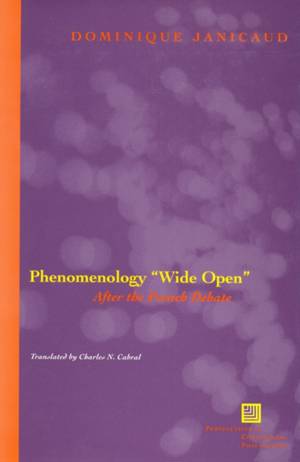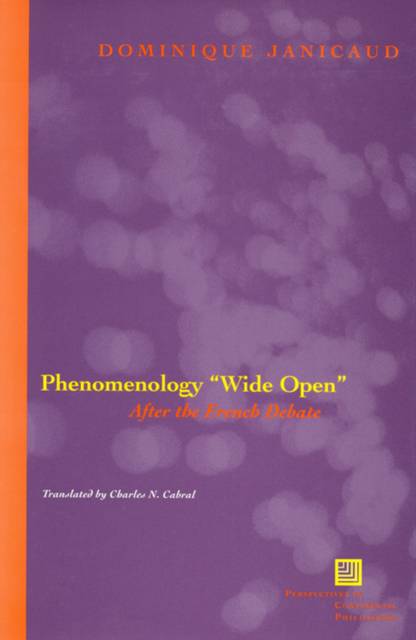
- Afhalen na 1 uur in een winkel met voorraad
- Gratis thuislevering in België vanaf € 30
- Ruim aanbod met 7 miljoen producten
- Afhalen na 1 uur in een winkel met voorraad
- Gratis thuislevering in België vanaf € 30
- Ruim aanbod met 7 miljoen producten
Zoeken
Omschrijving
Is phenomenology in jeopardy? Will the phenomenological movement survive intact amongst the ever-expanding adherence to some part of this doctrine? Will phenomenology cease to be a major influence in contemporary continental philosophy and beyond? Are we dealing with a purely and intrinsically French phenomenon in the vast domain of all philosophy? Can some resolution be brought about through the limitation or delimitation of our sphere of investigation? Will we ever succeed in lifting the ambivalence out of the phenomenological project? Dominique Janicaud advises us to consider a "minimalist" approach to these questions, one that would leave phenomenology open to its greatest possibilities. We must consider the scientific and metaphysical overinvestment of phenomenology. Yet we must also imagine how phenomenology might finally escape this unifying and foundational tendency, which has driven it to overburden immanence with a transcendence that is none other than of subjectivity in its various guises and at its various levels. This book aspires to bring that ongoing debate to the English-speaking world.
Specificaties
Betrokkenen
- Auteur(s):
- Vertaler(s):
- Uitgeverij:
Inhoud
- Aantal bladzijden:
- 126
- Taal:
- Engels
- Reeks:
Eigenschappen
- Productcode (EAN):
- 9780823224470
- Verschijningsdatum:
- 10/05/2010
- Uitvoering:
- Paperback
- Formaat:
- Trade paperback (VS)
- Afmetingen:
- 155 mm x 231 mm
- Gewicht:
- 204 g

Alleen bij Standaard Boekhandel
+ 106 punten op je klantenkaart van Standaard Boekhandel
Beoordelingen
We publiceren alleen reviews die voldoen aan de voorwaarden voor reviews. Bekijk onze voorwaarden voor reviews.











